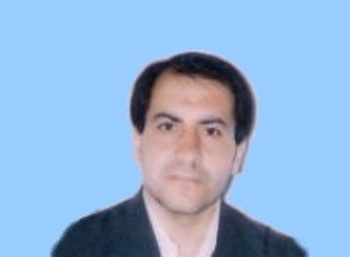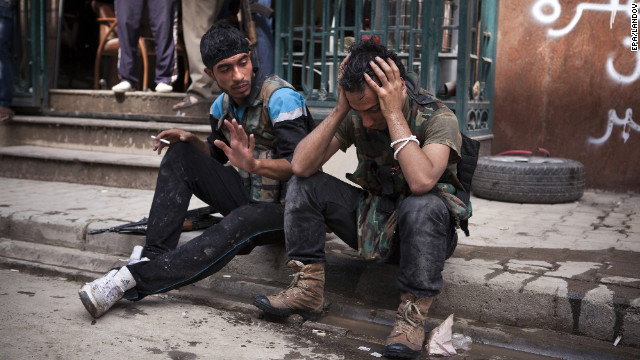By Justin Dorman
Impunity Watch Reporter, Middle East
TEHRAN, Iran – Friday was World Teachers Day. In observance of the event, Human Rights Watch issued a statement that all teachers imprisoned in Iran for speaking out against the government should be set free.

Many teachers are regularly harassed by the Iranian authorities for making anti-government statements. The government justifies it under the guise of protecting national security. Even comments calling for higher wages are regarded as seditious. As a result, association with a trade union is cause for further persecution.
Since 2009, at least thirty-nine teachers have been detained. Mohammad Davari, Rasoul Bodaghi, Abdollah Momeni, and Mahmoud Bagheri are only a few of the educators who are currently imprisoned. Collectively, the four are serving a sentence of twenty-four and a half years in jail for the national security charges of “propaganda against the regime,” “colluding and assembly with the intention of disrupting national security,” and participating in illegal gatherings. Only Momeni is not a member of a teachers’ trade association.
“The arrest and detention of teachers is symptomatic of the Iranian government’s inability to tolerate any show of dissent, even from those it entrusts with the education of its children,” said Nadim Houry, Human Rights Watch’s deputy Middle East director.
Davari was previously the editor-in-chief of the Saham News website, but is now a teacher. He is a disabled Iran-Iraq War veteran, and was a member of the Central Council of the Iranian Teachers Association and union activist. Since being put in prison, Davari has been tortured. The condition of his teeth have been worsening and he has suffered chest pains. Additionally, he has developed acute psychological illness that has progressively worsened. Prison officials often deny Davari’s privilege to see family and visitors and deny him phone calls. His attorneys have sought a furlough from prison so that he can seek treatment and get the affairs of his mother, whom he had previously been supporting, in order. Not only was his request denied, but his five year sentence was increased to six years.
Rasoul Bodaghi serves on the board of directors of the Iranian Teachers Trade Association. Since being imprisoned, he has been repeatedly beaten by guards in Karaj Gohardasht prison. In the past, the guards have taken Bodaghi into corridors and have tied him to the prison bars where they have assaulted him. Bodaghi has sustained injuries to his head, face, and teeth.
Momeni, the former spokesperson for the Central Council of the Alumni Organization of University Students of the Islamic Republic, has been particularly outspoken.
“[W]e believed and continue to believe that the student movement should not sing the praises of the power structures and those in power, rather it must offer criticism of those who take advantage of their power, no matter what their background, and must defend the rights of the people, including women’s rights and the rights of ethnic and religious minorities,” he wrote to Ayatollah Khomeini in an August 2010 letter from prison.
For his beliefs, he has been imprisoned and subjected to solitary confinement. When he was arrested, security officials used tear gas in a closed, confined space. He was then beaten until he had a bloody nose and bleeding teeth before he was brought to Evin prison. Since his arrival, he has seen the sky on just a few occasions due to his solitary confinement. Momeni would often be interrogated, during which he would be choked until he approached his last moments of consciousness. The constant strangling made eating and drinking incredibly painful. All the while, officials would use torture on Momeni to coerce him to admit to false allegations. In addition to brutally beating him, the authorities would also humiliate him. On one occasion, his head was forced down a toilet filled with feces.
Momeni has called for a truth commission to investigate how prisoners are tortured until they confess to crimes they never committed. The Ayatollah’s present stance is that anything an accused person says about himself in court is credible.

Mahmoud Bagheri, a member of the Iranian Teachers’ Association’s Board of Directors, has twenty-seven years of experience teaching physics. His prison sentence is currently set for nine and a half years. Bagheri’s imprisonment is the result of his attendance at demonstrations where teachers low wages were protested. Like Davari, Bagheri is an Iran-Iraq War veteran who requires medical attention.
Human Rights Watch is not the only group that is striving to make a difference regarding teachers in Iran. Shirin Ebadi, winner of the 2003 Nobel Peace Prize, has been pushing a new teachers’ rights initiative called “Be Voice of Iranian Teachers.” The group is comprised of human rights activists, journalists, teachers, and lawyers who seek to have the Iranian government listen to Iranian teachers’ legitimate demands without arresting and imprisoning them.
Ebadi’s fear is that, “[w]hen our youth observe that their teachers are imprisoned for legitimate demands, what lesson can they learn from this unjust act of the regime, especially as the teachers in prison have been deprived from due process and some of them have been tortured?”
“Take a stand for teachers” was the slogan of this year’s World Teachers’ Day. Supporting the teachers of Iran was a large part of the discussion held by the United Nations, the International Labour Organization, the United Nations Development Programme, and UNICEF.
For further information, please see:
Human Rights Watch – Iran: Free Teachers Jailed for Speaking Out – 5 October 2012
Women News Network – Taking a Stand for Teachers on UN World Teachers’ Day – 3 October 2012
International Campaign for Human Rights in Iran – Nobel Laureate Stresses the Plight of Imprisoned Teachers in Exclusive Interview – 2 October 2012
Persian Icons – This World Teacher’s Day, Let us be the Voice for the Voiceless and Innocent Iranian Teachers Behind Bars! – 30 September 2012
Iranian – Mahmoud Bagheri: Prisoner of the day – 2 July 2012
International Campaign for Human Rights in Iran – Mohammad Davari – 13 April 2012
International Campaign for Human Rights in Iran – Letter of Prominent Prisoner of Conscience, Abdollah Momeni, to Ayatollah Khamanei – 9 September 2010
Iranian – Rasoul Bodaghi, a Member of the Board of Directors of the Iranian Teachers Trade Association, has Been Severely Beaten – 30 May 2010



